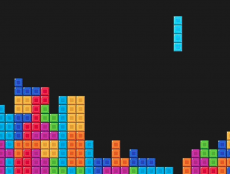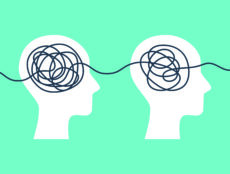
Whether you’re an instructional designer, researcher or educator, it is important to stay on top of new developments in the field. Below eLearning Inside News offers short summaries of five recommended new books on eLearning, mLearning, blended learning and educational technologies to help you get started.
Five Recommended Books on eLearning
Giving Voice: Mobile Communication, Disability, and Inequality / Meryl Alper
 While not exclusively a book about mobile learning, Giving Voice is nevertheless a must-read book for anyone interested in the educational application of mobile technologies. As Meryl Alper notes, technologies are often seen as a way to empower people, but this belief is also rooted in assumptions about ability, disability and technologies. In this new book, Alper explores how the use of specific technologies can support children with disabilities. Alper also goes a step further to explore how these innovations still promote existing inequalities. Finally, Alper explores how the technologies reflect specific class biases. Simply put, Alper’s new study shows that giving someone a tablet, phone or computer is rarely enough to give the a voice. Technologies reflect deeply embedded inequalities and often perpetuate them. Alper’s book is essential reading for anyone who wants to understand how instructional design is part of the problem and holds the potential to be part of the solution to inequality too.
While not exclusively a book about mobile learning, Giving Voice is nevertheless a must-read book for anyone interested in the educational application of mobile technologies. As Meryl Alper notes, technologies are often seen as a way to empower people, but this belief is also rooted in assumptions about ability, disability and technologies. In this new book, Alper explores how the use of specific technologies can support children with disabilities. Alper also goes a step further to explore how these innovations still promote existing inequalities. Finally, Alper explores how the technologies reflect specific class biases. Simply put, Alper’s new study shows that giving someone a tablet, phone or computer is rarely enough to give the a voice. Technologies reflect deeply embedded inequalities and often perpetuate them. Alper’s book is essential reading for anyone who wants to understand how instructional design is part of the problem and holds the potential to be part of the solution to inequality too.
Design of Technology-Enhanced Learning: Integrating Research and Practice / Matt Bower
![Design of Technology-Enhanced Learning: Integrating Research and Practice by [Bower, Matt]](https://images-na.ssl-images-amazon.com/images/I/51H3GEuN8DL.jpg) Forthcoming in July 2017, this new publication, issued by Emerald Publishing, seeks to provide an academic and teaching audience with “an integrated understanding of learning technology research, and how it can be used to enhance the design of learning environments.” While many books focus only on research and others are “how-to” guides, Design of Technology-Enhanced Learning promises a balance of theory and practice. In addition to exploring the educational uses of Web 2.0, social networking, mobile learning and virtual technologies, Bower tackles a series of more abstract questions and challenges. Rigorous but still user-friendly, Design of Technology-Enhanced Learning is a must read among books on eLearning for academics, educators, and educational researchers. The book provides critical insights into how to design, deliver, and evaluate eLearning courses whether you’re working in K-12 education, higher education or a training context.
Forthcoming in July 2017, this new publication, issued by Emerald Publishing, seeks to provide an academic and teaching audience with “an integrated understanding of learning technology research, and how it can be used to enhance the design of learning environments.” While many books focus only on research and others are “how-to” guides, Design of Technology-Enhanced Learning promises a balance of theory and practice. In addition to exploring the educational uses of Web 2.0, social networking, mobile learning and virtual technologies, Bower tackles a series of more abstract questions and challenges. Rigorous but still user-friendly, Design of Technology-Enhanced Learning is a must read among books on eLearning for academics, educators, and educational researchers. The book provides critical insights into how to design, deliver, and evaluate eLearning courses whether you’re working in K-12 education, higher education or a training context.
Mobile Learning Mindset / Carl Hooker
 You’ve likely already heard about the “growth mindset,” a concept introduced by Carol Dweck, and now there is the “mobile learning mindset.” In this new book by Carl Hooker readers discover practical knowledge and strategies for the successful implementation of K-12 “bring-your-own-device” programs. Targeting principals, teachers, IT staff, educational coaches, as well as parents, this six part series offers lessons, reviews best practices, and provides examples to help school leaders who are contemplating the implementation of a mobile device initiative or looking for ways to revise and refine an existing program in their schools. For any K-12 educator who continues to worry about devices being a bigger distraction than aid to learning, Hooker also offers a compelling defense of new technologies and their place in the classroom and practical advice on how to embrace what he describes throughout the book as the mobile learning mindset.
You’ve likely already heard about the “growth mindset,” a concept introduced by Carol Dweck, and now there is the “mobile learning mindset.” In this new book by Carl Hooker readers discover practical knowledge and strategies for the successful implementation of K-12 “bring-your-own-device” programs. Targeting principals, teachers, IT staff, educational coaches, as well as parents, this six part series offers lessons, reviews best practices, and provides examples to help school leaders who are contemplating the implementation of a mobile device initiative or looking for ways to revise and refine an existing program in their schools. For any K-12 educator who continues to worry about devices being a bigger distraction than aid to learning, Hooker also offers a compelling defense of new technologies and their place in the classroom and practical advice on how to embrace what he describes throughout the book as the mobile learning mindset.
Emerging Practices in Scholarship of Learning and Teaching in a Digital Era / Siu Cheung Kong et al.
 Some of the most thoughtful thinking on online instructional design continues to emerge from Chinese educational researchers. In Emerging Practices in Scholarship of Learning and Teaching in a Digital Era, Sieu Cheung Kong and colleagues explore best practices in eLearning with a focus on the higher education context. Targeting higher education institutions, teaching staff, and students, this new book explores everything from student learning experiences to assessment. The book also grapples with specific educational concerns, such as institution’s with “bring your own device” policies. While the examples are primarily focus on China’s specific educational context, the best practices explored by Kong and colleagues are universally relevant, making Emerging Practices essential reading for educators and trainers around the world.
Some of the most thoughtful thinking on online instructional design continues to emerge from Chinese educational researchers. In Emerging Practices in Scholarship of Learning and Teaching in a Digital Era, Sieu Cheung Kong and colleagues explore best practices in eLearning with a focus on the higher education context. Targeting higher education institutions, teaching staff, and students, this new book explores everything from student learning experiences to assessment. The book also grapples with specific educational concerns, such as institution’s with “bring your own device” policies. While the examples are primarily focus on China’s specific educational context, the best practices explored by Kong and colleagues are universally relevant, making Emerging Practices essential reading for educators and trainers around the world.
Blended Learning in Action / Catlin Tucker and Tiffany Wycoff
 Released in late 2016 by Corwin, Catlin Tucker and Tiffany Wycoff’s Blended Learning in Action belongs in everyone’s stack of essential books on eLearning. Indeed, it’s a must read for anyone interested in exploring the places where online learning and the traditional classroom space meet. As Tucker and Wycoff insist, blended learning has the power to reinvent the educational terrain but this also means that educators must acquire a new skill set. To help educators integrate new technologies, Tucker and Wycoff’s practical and accessible book breaks down the most effective classroom setups for blended learning, offers ideas on how to personalize instruction using new technologies, outlines strategies for managing devices in the classroom (to reduce distraction and amplify learning opportunities), and poses questions to facilitate professional development and deeper learning among educators and instructional designers.
Released in late 2016 by Corwin, Catlin Tucker and Tiffany Wycoff’s Blended Learning in Action belongs in everyone’s stack of essential books on eLearning. Indeed, it’s a must read for anyone interested in exploring the places where online learning and the traditional classroom space meet. As Tucker and Wycoff insist, blended learning has the power to reinvent the educational terrain but this also means that educators must acquire a new skill set. To help educators integrate new technologies, Tucker and Wycoff’s practical and accessible book breaks down the most effective classroom setups for blended learning, offers ideas on how to personalize instruction using new technologies, outlines strategies for managing devices in the classroom (to reduce distraction and amplify learning opportunities), and poses questions to facilitate professional development and deeper learning among educators and instructional designers.









No Comments